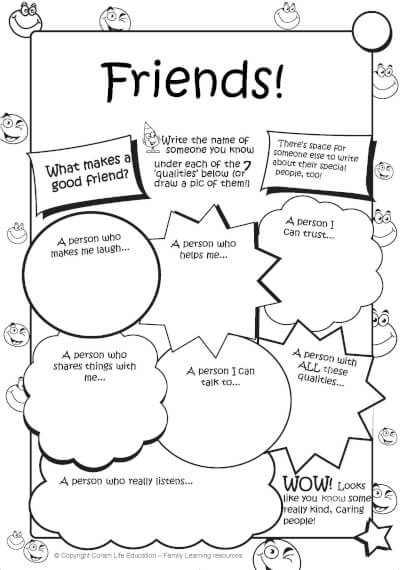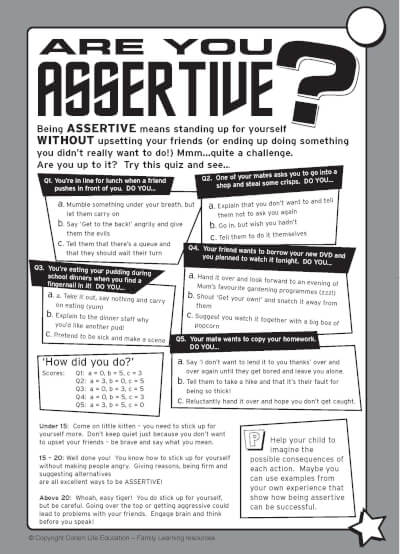At home with SCARF - Activities for 9 to 11 year-olds
What your child will be learning about
- Feelings
- Friendship skills, including compromise
- Assertive skills
- Cooperation
- Recognising emotional need
- Positive relations
What your child can think about - or for you to talk about, together
- What helps me to get on with my friends?
- How can I be a good friend and look after my friends?
- How can I tell how someone else is feeling so that I can understand their actions?
- How can I be a good listener?
- What should I do if a friend asks me to do something that I don’t think is a good idea and that might be unsafe or risky?
What your child can do - together with you or independently
Activity 1 - Collaboration challenge!
You need someone in your family to do this activity with - it can be a sibling who’s also at home or a grown-up who has some time to join you in the challenge. Ask permission from a grown-up before starting.
You’ll also need some old newspaper - or a magazine if you don't have any newspaper - and some sticky tape.
The challenge is to collaborate - that means work as a team - to make the tallest tower you can from six sheets of newspaper (more if you're using a magazine).
The challenge is to do this without any disagreements or falling out. So you have to negotiate - that means explaining how you think you should make your tower and finding polite ways of putting your ideas forward.
Afterwards, talk about what it was like. Did it feel easy or was it tricky? Were you frustrated at any time? How can you overcome frustration and work as a team?
Activity 2 - Respectful relationships
Start by making a list of all the things that make a good friend (e.g. helpful, kind)
Find a recipe for a cake - try BBC Good Food online or a recipe book if you have one.
Write a recipe for friendship, using recipe-writing language, e.g. 200g of kindness, 100g of thoughtfulness, two tablespoons of humour - you get the idea!
You could draw a picture of a cake and write the recipe on top of it.
Or try our 'What makes a good friend?' activity sheet, below:

(Click on the image to make it bigger or to print.)
If you don't have a printer, draw the bubbles on a piece of paper then fill them in.
Activity 3 - Standing up for myself
Friends are fun to be with and can sometimes help us if we’re feeling unhappy. Friends can sometimes be unkind, too. They might even ask us to do things that we think are risky.
Being able to stand up for yourself is an important skill that you can work at and get better at - just like doing maths, drawing, sport or writing. Practice makes perfect!
Here are some things that we can do if a friend is asking us to do something risky:
- Stand firm - say why you don’t think it’s a good idea
- Speak clearly
- Be friendly and polite
- Stay calm
- Look confident (relaxed body and arms)
- Negotiate
- Repeat your ideas ('stuck cd' technique)
- Relaxed body language
- Make eye contact when you speak
- Walk away if necessary - but as a friend
- Smile
- Don’t get personal
Make an Assertiveness Manual - draw some simple pictures to advertise assertiveness skills - use the ideas above or make up your own.
Activity 4 - Assertiveness quiz
Try our quiz to find out what assertiveness is all about.

(Click on the image to make it bigger or to print.)
If you don't have a printer, just answer the questions on a piece of paper then check your results. And remember - we're not born being assertive! Some people might be naturally more assertive than others but it's a skill that we can all develop and improve. Assertiveness helps us to get our needs met without ignoring the needs of other people.

